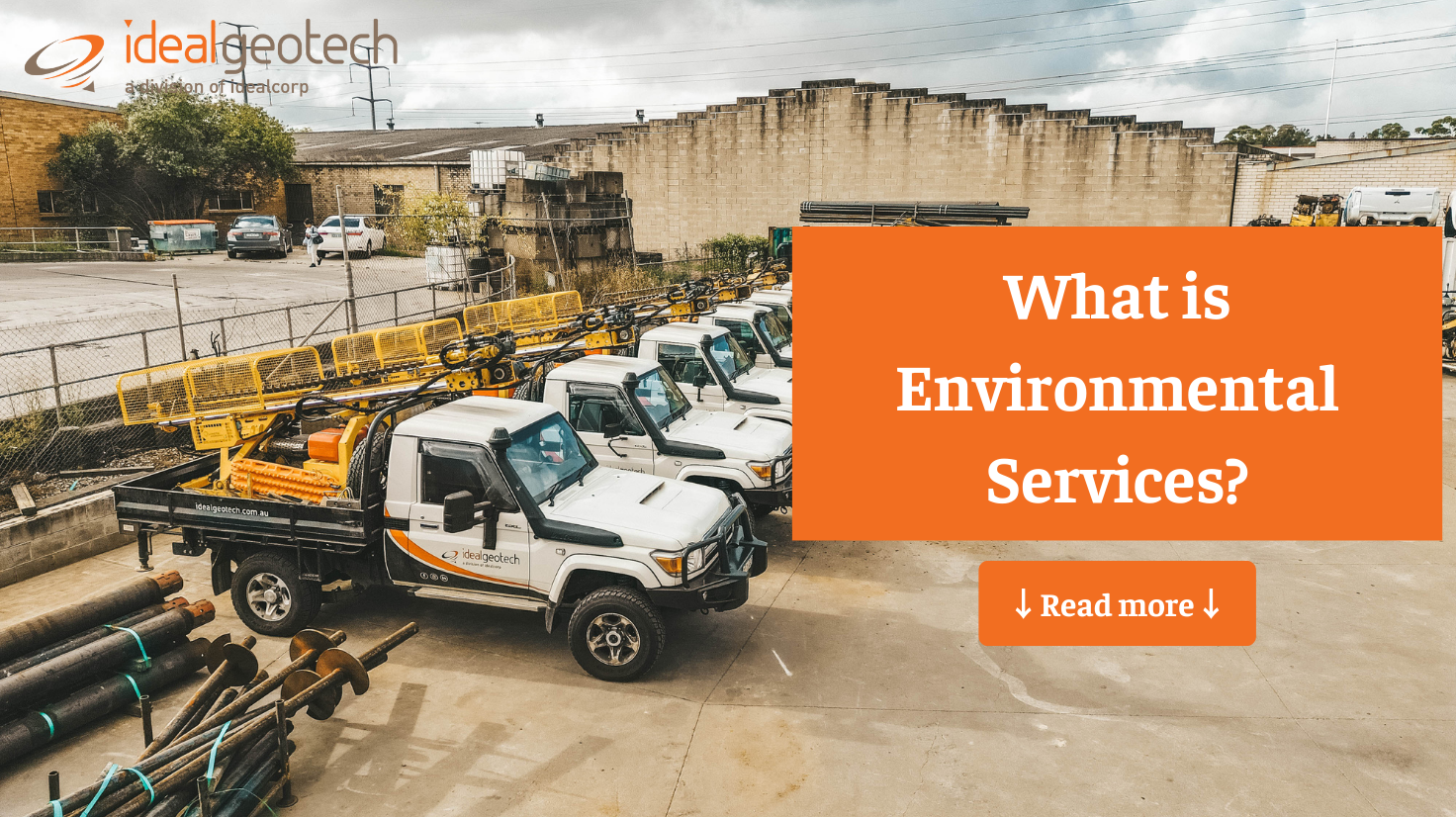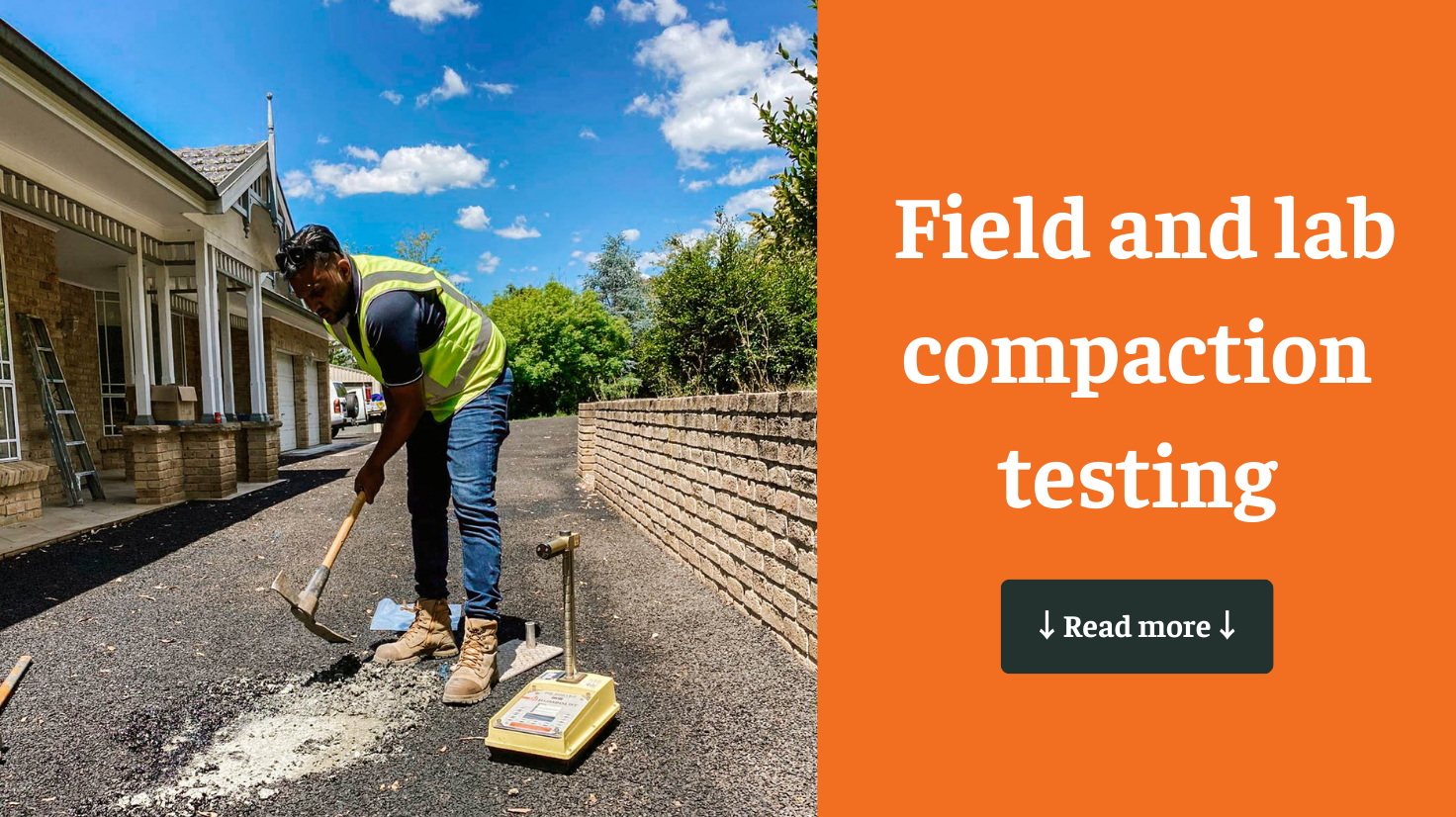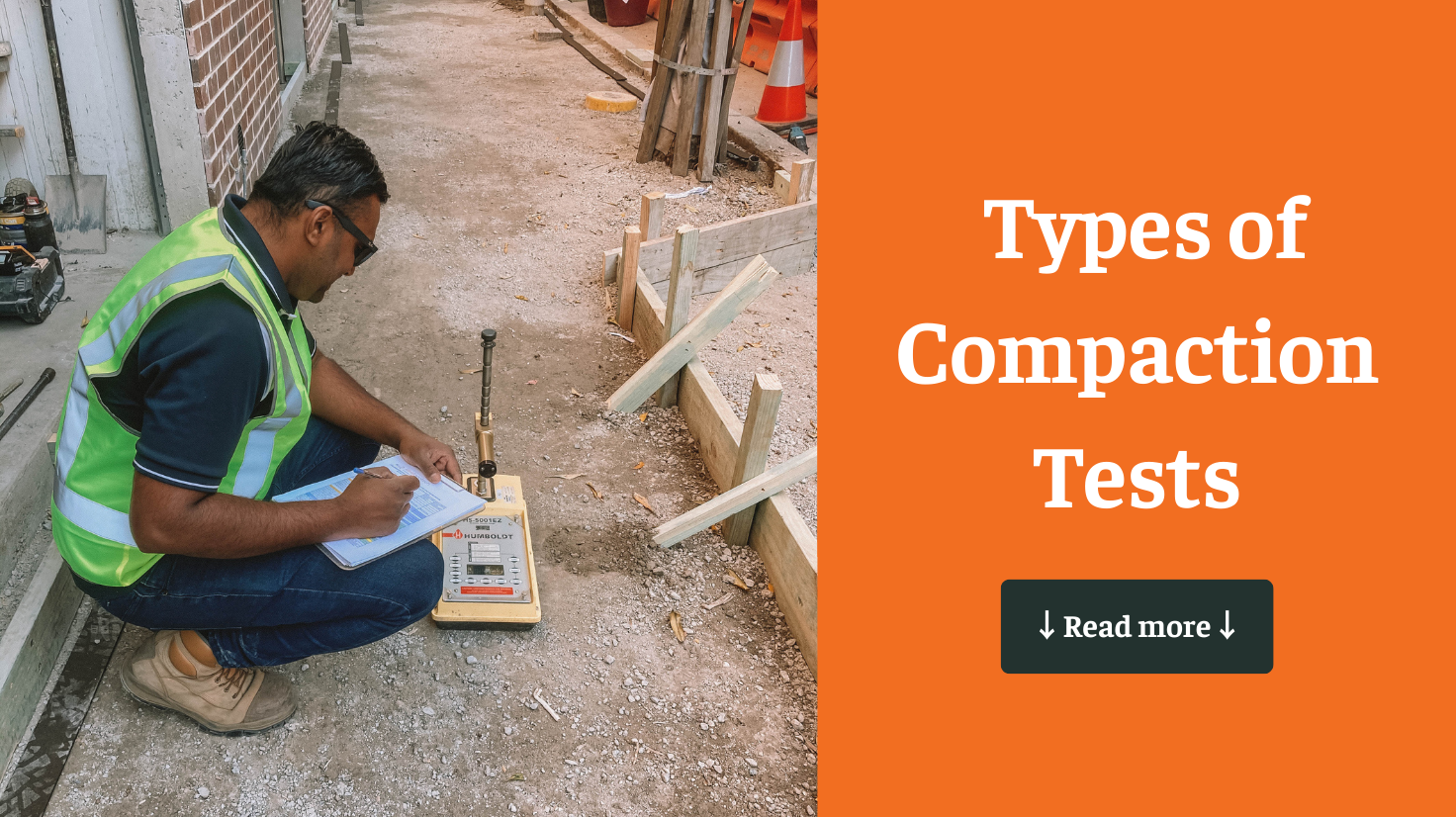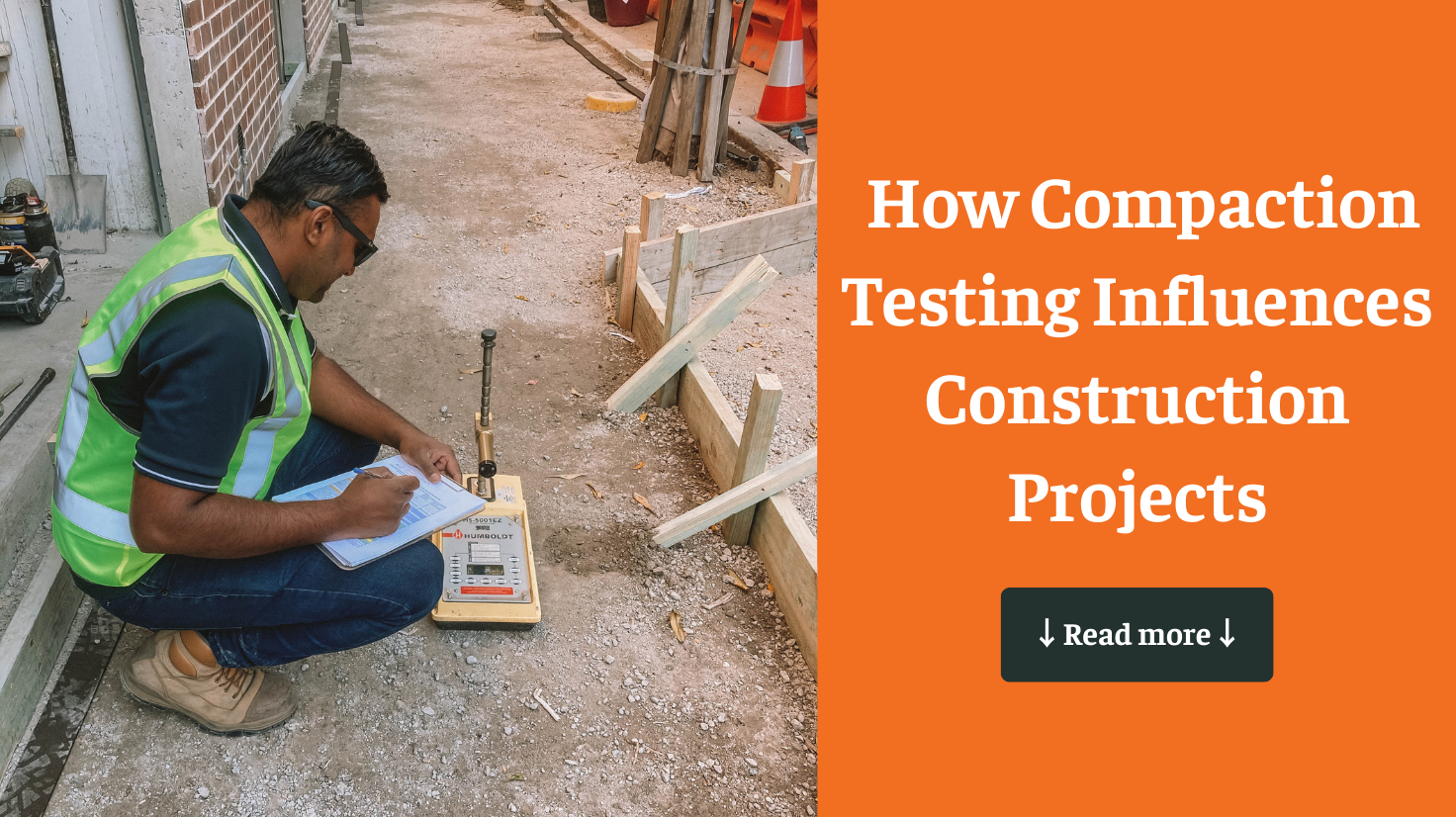Environmental services are essential for ensuring the safety and sustainability of construction projects. Ideal Geotech provides a comprehensive suite of environmental testing and inspection services, overseen by Chartered Environmental Practitioners, to mitigate environmental impacts during construction and ensure project compliance.
Our services include waste classification for soil disposal, preliminary site investigations, detailed site investigations, remediation action plans, and environmental management plans.
1. Environmental Services Overview
Ideal Geotech offers a range of environmental services to support construction projects and ensure they meet regulatory standards and sustainability goals. These services are designed to identify, assess, and manage environmental risks, ensuring safe and responsible development.
2. Waste Classification for Soil Disposal (VENM and ENM)
Waste Classification for Soil Disposal: Proper classification of soils for disposal is crucial to comply with the NSW Office of Environment and Heritage Guidelines. Soils are classified into various categories, such as Virgin Excavated Natural Material (VENM) and Excavated Natural Material (ENM), each requiring different disposal methods.
- VENM: Soils that are free from contaminants and can be reused without treatment.
- ENM: Soils that meet specific criteria for contamination levels and can be reused or disposed of with minimal environmental impact.
This classification ensures that soils are disposed of or reused in an environmentally responsible manner, preventing contamination and promoting sustainability.
3. Preliminary Site Investigations (PSI) – With CEnvP Review
Preliminary Site Investigations (PSI): These investigations assess potential environmental contamination at a site. The process includes historical reviews, site inspections, and identifying potential contamination sources. The goal is to determine if further investigation is needed.
- Historical Review: Examines past uses of the site to identify potential contamination sources.
- Site Inspections: Visual assessments to identify visible signs of contamination or environmental concerns.
- Potential Contamination Sources: Identifies areas that may need further testing or remediation.
A Chartered Environmental Practitioner (CEnvP) reviews all findings to ensure accuracy and compliance with environmental standards.
4. Detailed Site Investigations (DSI) – With CEnvP Review
Detailed Site Investigations (DSI): These involve comprehensive sampling and analysis of soil, groundwater, and other environmental media. The aim is to thoroughly assess the extent and nature of contamination, providing detailed information for remediation planning.
- Comprehensive Sampling: Collects soil, water, and air samples for laboratory analysis.
- Analysis of Environmental Media: Tests for contaminants to determine their concentration and distribution.
- Remediation Planning: Provides data to develop effective remediation strategies.
A Chartered Environmental Practitioner (CEnvP) reviews the investigation to ensure all assessments are thorough and meet regulatory requirements.
5. Remediation Action Plan (RAP) – With CEnvP Review
Remediation Action Plan (RAP): This plan outlines the strategies and methods for cleaning up contaminated sites. The RAP provides detailed, site-specific solutions for mitigating environmental hazards and restoring site safety and compliance.
- Site-Specific Solutions: Tailored strategies to address the unique contamination issues of a site.
- Mitigating Environmental Hazards: Plans to reduce or eliminate risks to human health and the environment.
- Restoring Site Safety: Ensures the site meets safety standards for its intended use.
A Chartered Environmental Practitioner (CEnvP) reviews the RAP to ensure it meets all regulatory and safety requirements.
6. Environmental Management Plan (EMP)
Environmental Management Plan (EMP): EMPs guide construction and development projects by outlining procedures for managing environmental impacts. These plans ensure compliance with regulations and promote sustainable practices throughout the project lifecycle.
- Impact Management: Procedures to minimize negative environmental impacts during construction.
- Regulatory Compliance: Ensures all activities meet local, state, and federal environmental regulations.
- Sustainable Practices: Promotes eco-friendly methods and materials to reduce the environmental footprint of the project.
7. Conclusion
Environmental services are critical for the success and sustainability of construction projects. They provide essential information and strategies to manage environmental risks, ensuring safe, compliant, and sustainable development. By utilizing these services, projects can mitigate environmental impacts, adhere to regulations, and promote long-term sustainability.
Ideal Geotech specializes in providing comprehensive geotechnical and environmental services, including waste classification, site investigations, remediation planning, and environmental management. Ensure your construction project is environmentally responsible and compliant with the expert support from Ideal Geotech.
Visit our website or contact our team today to learn more about how our services can support your next project.






